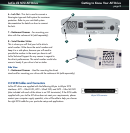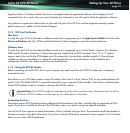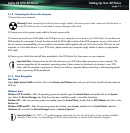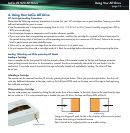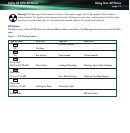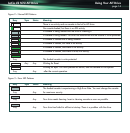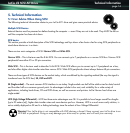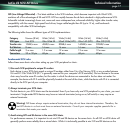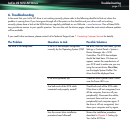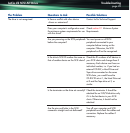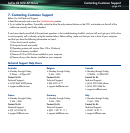
Technical Information
page 16
LaCie d2 SCSI AIT Drive
5. Technical Information
5.1 User Advice When Using SCSI
The following technical information relates to your LaCie AIT1 drive and gives some practical advice:
Multiple SCSI Devices
External devices must be powered on before booting the computer — even if they are not to be used. They MUST be left on
until the computer has been shut down.
SCSI basics
This section provides a brief description of the SCSI technology and lays down a few basic rules for using SCSI peripherals as
stand-alone devices or in a chain.
There are two main categories of SCSI: Narrow SCSI and Wide SCSI.
Narrow SCSI – This is the term used for 8-bit SCSI. You can connect up to 7 peripherals on a narrow SCSI bus. Narrow SCSI
peripherals have either 25 or 50 pin connectors.
Wide SCSI – This is the term used to describe 16-bit SCSI. Wide SCSI allows you to connect up to 15 peripherals on a bus,
and also offers higher data transfer rates than narrow SCSI. Wide SCSI peripherals almost always feature 68-pin connectors.
There are three types of SCSI devices on the market today, which are defined by the signaling method (the way the signal is
transferred over the SCSI bus): SE, HVD and LVD.
SE (Single-ended) – The most common SCSI interface in use today. Single-ended uses half of the cable wires for data/control
and the other half as a common ground point. Its advantages include its low cost, and suitability for a wide variety of
applications, including hard drives, CD and DVD drives, as well as scanners and printers. LaCie Narrow hard drives are
single-ended.
HVD (High Voltage Differential) – HVD has three main advantages over SE: It is possible to have longer overall bus lengths
[up to 25 meters (m)], higher data transfer rates and more devices per bus. However, HVD is a much more costly solution, is
not as widely deployed as SE and is a fading technology since the advent of Low Voltage Differential.
Warning! Your LaCie drive is not compatible with HVD devices or buses! Never connect your LaCie drive to an
HVD bus or peripheral. Doing so may damage your drive and/or system, and will void your warranty.



